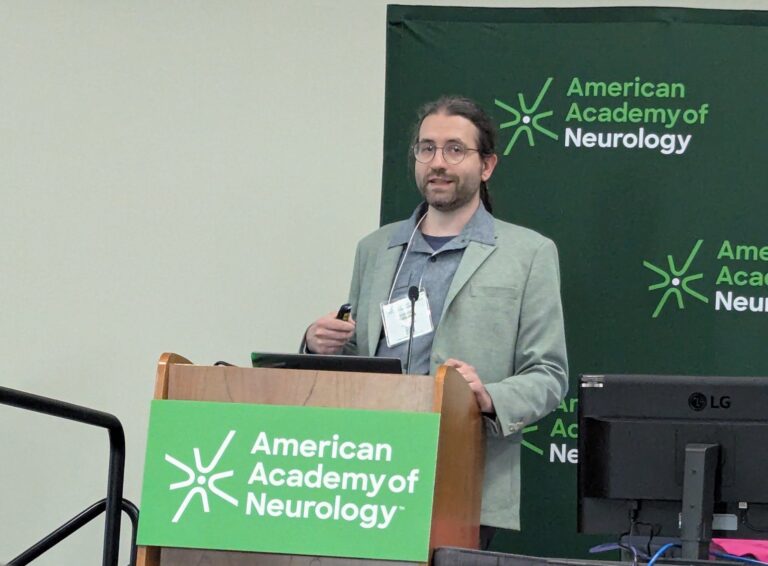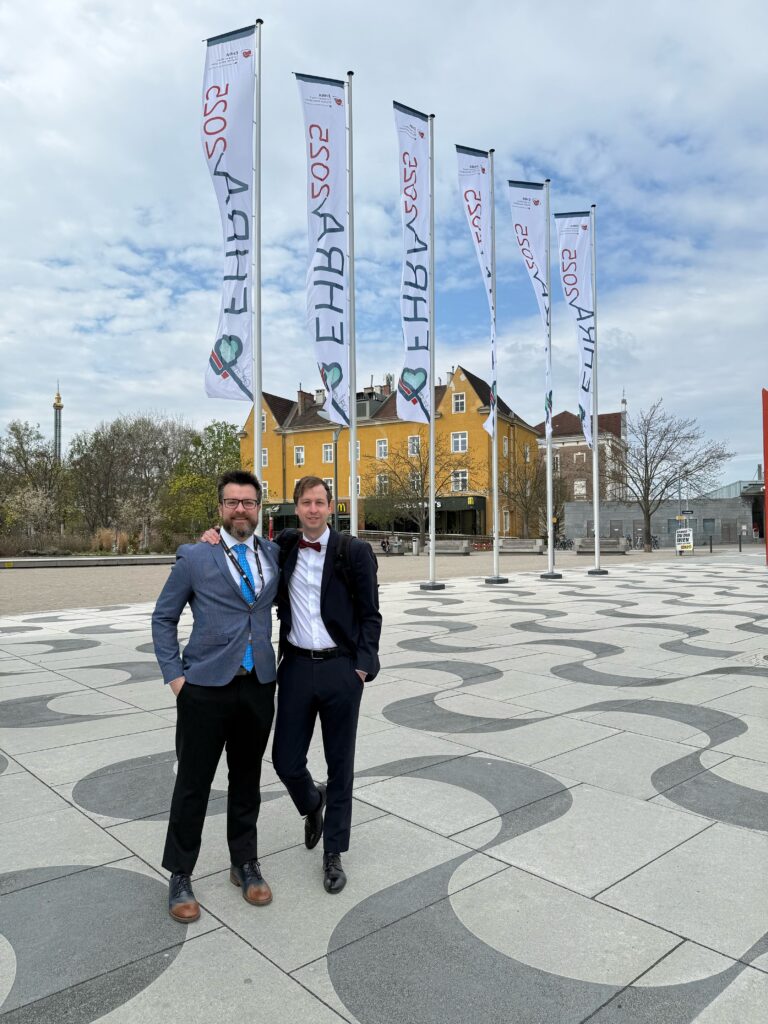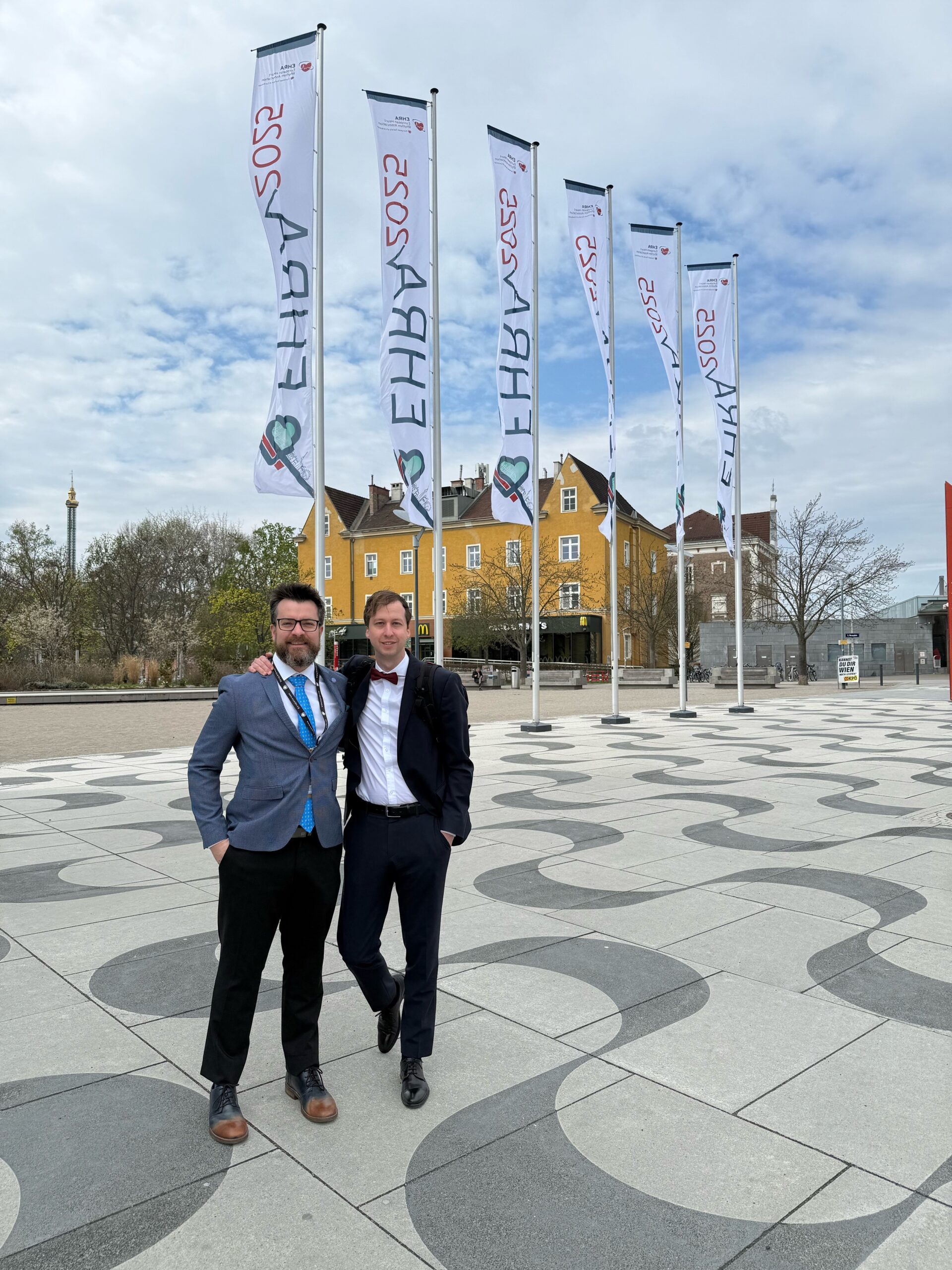Researchers at PHRI have received Health Canada approval for a nationwide clinical trial to test a new treatment for a genetic heart disorder, characterized by episodes of fainting and, in some cases, cardiac arrest and sudden death in previously perceived healthy individuals.
The TaRGET trial will enroll patients with genotype-positive arrhythmogenic cardiomyopathy (ACM). The trial seeks to assess the impact of Tideglusib, an oral glycogen synthase kinase-3 beta (GSK3β) inhibitor, in reducing the frequency of premature ventricular complexes associated with ACM. Should Tideglusib be found effective, it will provide compelling data to motivate larger studies designed to evaluate clinical outcomes.

Jason Roberts
Jason Roberts, a PHRI Scientist and principal investigator of the trial, states, “it can be a helpless feeling to carry a gene for ACM and know that no matter how you live your life, you may someday develop a deadly form of heart disease.”
“Our goal is to develop a medical therapy that can prevent ACM and significantly improve the lives of of affected patients and their families.”
Enrollment for the TaRGET trial, set to begin in mid-2024 with 120 participants, will span 20 sites across Canada. The research, led by Roberts and PHRI Senior Scientist Stuart Connolly, who is also the Chair of the steering committee, involves collaboration with multiple Canadian organizations, including the Hearts in Rhythm Organization (HiRO).
The national HiRO program plays a crucial role in the trial’s feasibility, facilitating enrollment of individuals from different sites across Canada who carry a genetic variant that predisposes to the development of ACM.
Understanding the root causes of ACM has posed challenges, hindering the development of tailored treatments. “While current methods like defibrillators and anti-arrhythmic medications help control the heart’s electrical activity in patients with ACM, they don’t address the root cause of the illness” says Roberts.
In 2014, researchers tested various bioactive compounds against a zebrafish model of ACM. They identified a small molecule classified as a GSK3 inhibitor that stopped and reversed the issues linked to ACM, and this discovery was later confirmed in studies with mice.
“Tideglusib is an oral GSK3β inhibitor that has been confirmed as safe for people and work by our collaborators at the Ohio State University has shown its therapeutic efficacy in ACM mouse models. There’s a real need for an ACM treatment that directly tackles the underlying issue, and the TaRGET trial is striving to fill that gap,” adds Roberts.
The TaRGET trial, selected for funding by the Canadian Institutes of Health Research (CIHR) in 2023, is sponsored by PHRI and is expected to be completed in 2025.




